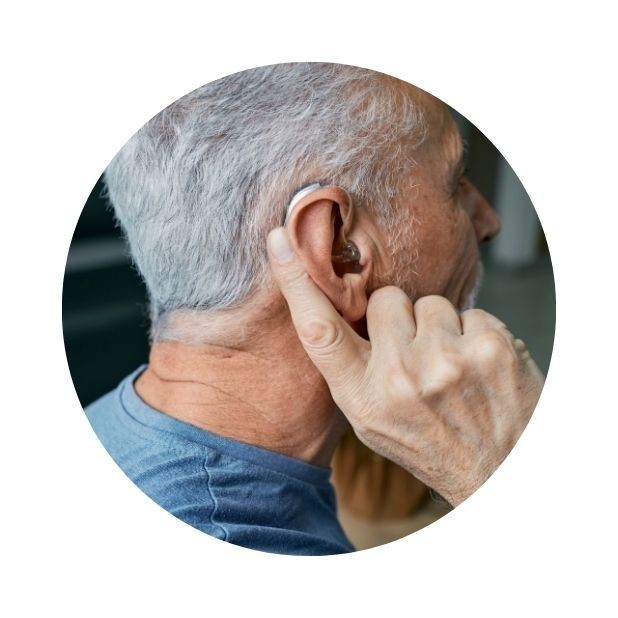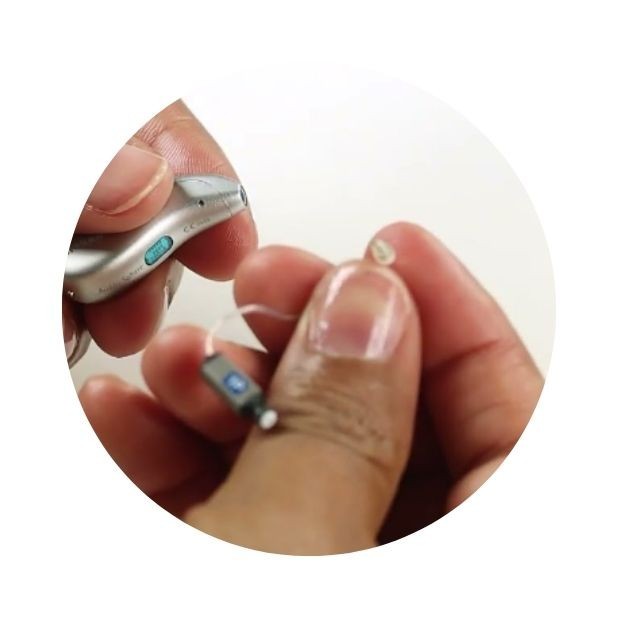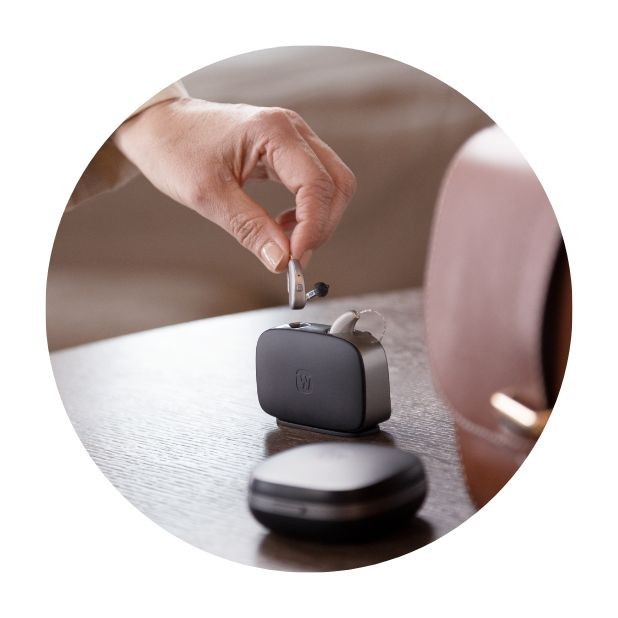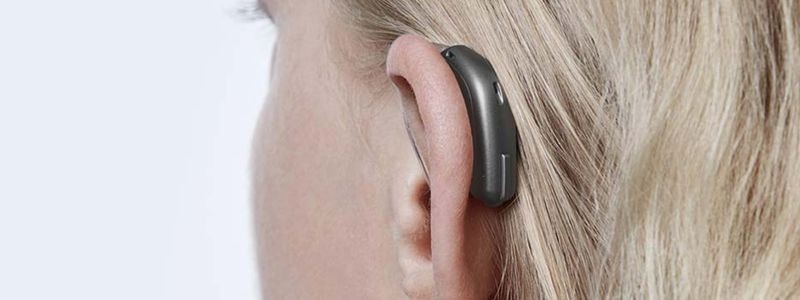Free home visits
with a local audiologist
Thinking about free NHS hearing aids? Thinking of upgrading your NHS hearing aids and not sure whether going private would be better?
Here we have compiled a brief informative page to help you make the right decision for you, your lifestyle, your needs, and the level of your hearing loss.
Below is a quick reference to some of the disadvantages of NHS hearing aids in the UK, or call us free on 0800 567 7621 for more information, support, and advice.

David
Audiologist
0800 567 7621

We are an independent company that provides private hearing aids and hearing healthcare.
However, we know how important researching all the avenues for hearing aids is, so we have compiled a brief informative page to help you make the right decision for you, your lifestyle, your needs, and the level of your hearing loss.
If you think your hearing has changed, then you must get your hearing checked as soon as possible. Your local GP or Ear, Nose, and Throat (ENT) centre can detect any problems like hearing loss, infection, or illness.
Hearing tests are free on the NHS, but if you need specialist treatment – your ENT department will undertake this for you.

The National Health Service (NHS) in the UK provides hearing aids to eligible individuals at no cost. To be eligible for an NHS hearing aid, you must have a hearing loss that is severe enough to affect your daily life and communication. In addition, you must be a resident of the UK and registered with a GP.
If you think you might be a good candidate for an NHS hearing aid, you can speak with your GP to see if you meet the criteria. If you are successful, you will be referred to an NHS audiology service near you, where you will be assessed and fitted with a hearing aid.
The type of hearing aid you receive will depend on your needs and preferences, as well as the availability of different models. However, the NHS does not cover the cost of certain types of hearing aids, such as those that are cosmetic or designed for use in specific environments such as in water.
In these cases, you will need to go private for your hearing healthcare and hearing aids to gain access to all hearing aid models, the latest hearing aid technology, and modern styles.

Your local ENT department can discuss the hearing healthcare options available to you from the NHS, as well as the NHS hearing aids currently on offer. Like with all healthcare services, there is always value in comparisons.
Exploring the private hearing healthcare route is equally as important, as we feel it is always beneficial to compare services with a second opinion to make a more valuable and confident choice for your hearing future.
We know that independent audiologists, like us, were rated 86% in the recent 2023 Which Report? by patients in regard to the service and hearing aids purchased.
We also know, from experience, that patients feel less like a number and more valued as individuals when they opt for private hearing healthcare.

Your hearing loss is just as unique as you and deserves the right treatment with the right hearing aid provider. However, we understand that every person is different, and what might suit someone might not be right for the next.
There are so many factors when considering private or NHS hearing aids - you have to weigh up what's the most important to you in regards to your hearing.
For example, hearing aid brands, types, connectivity, aftercare, price, and much more. Take a look at our PROS and CONS of NHS and private hearing healthcare below.
Please remember our PROS and CONS for private hearing healthcare are based on our ethos and services. Plus, not all private audiologists will offer home visits either for free or at all. Check with your provider at your first point of call.


Thinking of switching to private hearing healthcare and hearing aids? If you have an NHS hearing aid and you would like to upgrade to a private hearing aid, you will need to pay for the upgrade yourself.
The cost of a private hearing aid can vary depending on the brand, model, and features you choose.
To upgrade to a private hearing aid, you will need to visit a private audiologist who will professionally assess your hearing and recommend a suitable hearing aid based on your hearing needs and preferences.

All our hearing aid prices include testing, fitting, programming, follow-up appointments, aftercare, and much more. You will then be able to choose from a range of private hearing aids and pay for the ones you want.
If you decide to upgrade to a private hearing aid, it's important to keep in mind that you will no longer be eligible for free repairs and maintenance from the NHS.
However, unlike some hearing aid providers - all our hearing aid prices include tests, fitting, programming, follow-up appointments, and aftercare. There are no extra charges or hidden nasties!

The below link is a great source of reference if you are wondering about questions such as: what do NHS hearing aids look like? or what is the NHS hearing aids eligibility? and more. Because quite a lot of our patients come to us after wearing NHS hearing aids we can also give our honest NHS hearing aids review from our audiologists.
The below article is designed to just give you a taste of information surrounding NHS hearing aids and private hearing aids and healthcare - because there is so much more! Click on the following link to read our article that talks about this topic in more detail.
►Click here to read more about NHS hearing aids vs private
►Click here to read about what private hearing healthcare services we offer
You must receive the right information from the start when you are researching who to purchase your hearing aids from. From experience, before we appoint our patients, we ask them to write down any questions or anxieties about their hearing, hearing aids, or future hearing care needs.
You might even want to bring along a friend or family member to support you during this process and any decision-making. As we said previously, it is always beneficial to see what the NHS and private services have to offer you - then you can make a more informed choice.
Are your NHS hearing aids not working? Wherever you live, there will be an NHS hearing aid centre local to you that can help you repair your devices. To find out where your nearest resource is, head to the NHS website for more information.
The NHS provides a commendable service to the hearing loss community and during your appointment, they can give you information such as:

On the other hand, if you have an NHS hearing aid and you would like to upgrade to a different model, you will need to speak with your audiologist to see if this is possible. In general, the NHS will only allow you to upgrade your hearing aid if you have a medical need for a different model.
For example, if your hearing loss has changed or if you need a hearing aid with additional features that are not available on your current model.
To upgrade your hearing aid, you will need to request an assessment with an audiologist. During the assessment, the audiologist will determine whether an upgrade is necessary and, if so, which model is most suitable for your needs. If you are approved for an upgrade, the NHS will provide you with a new hearing aid at no cost.
If you think you or a loved one's hearing has changed, don't delay seeing an audiologist to test how well you're hearing.
An early diagnosis is essential to your quality of life and to ensure treatment is as successful as possible.
Call free on 0800 567 7621 to speak with one of our audiologists. We are open 8am - 8pm, 7 days a week
Do not spend hundreds of pounds without getting a second opinion from us.
 Not only are the prices great, but the service is fantastic! Many thanks to your team.
Not only are the prices great, but the service is fantastic! Many thanks to your team.A private company can usually see you much quicker, within a week or two, for the initial test and creating a mould. Depending on the style of hearing aid you choose you could wait between one and three weeks for your digital hearing aid to be fitted.
Whilst the NHS is reducing their waiting times, you could still wait around six weeks for your hearing test and a further six weeks for them to be fitted. This will vary depending on which part of the country you live in.
Although free, there is a need for a more structured and beneficial plan with follow-up appointments, maintenance checks and future monitoring with the patient and NHS.
Aftercare is just as important as the original diagnosis itself. You and your hearing loss needs can alter over time and it is important that your hearing abilities are checked regularly so that your hearing aids are working to their full potential.
Hearing aids typically last between three to seven years, and in some cases, even longer. The lifespan of a hearing aid depends on several factors, including its build quality, the level of maintenance it receives, and the amount of wear and tear from daily use.
When we refer to a product as 'Latest Launch', we mean it is the latest to be released on the market.
When we refer to a product as 'New', we mean that the product is the newest hearing aid model on the market.
When we refer to a product as 'Superseded', we mean that there is a newer range available which replaces and improves on this product.
When we refer to a product as an 'Older Model', we mean that it is has been superseded by at least two more recent hearing aid ranges.